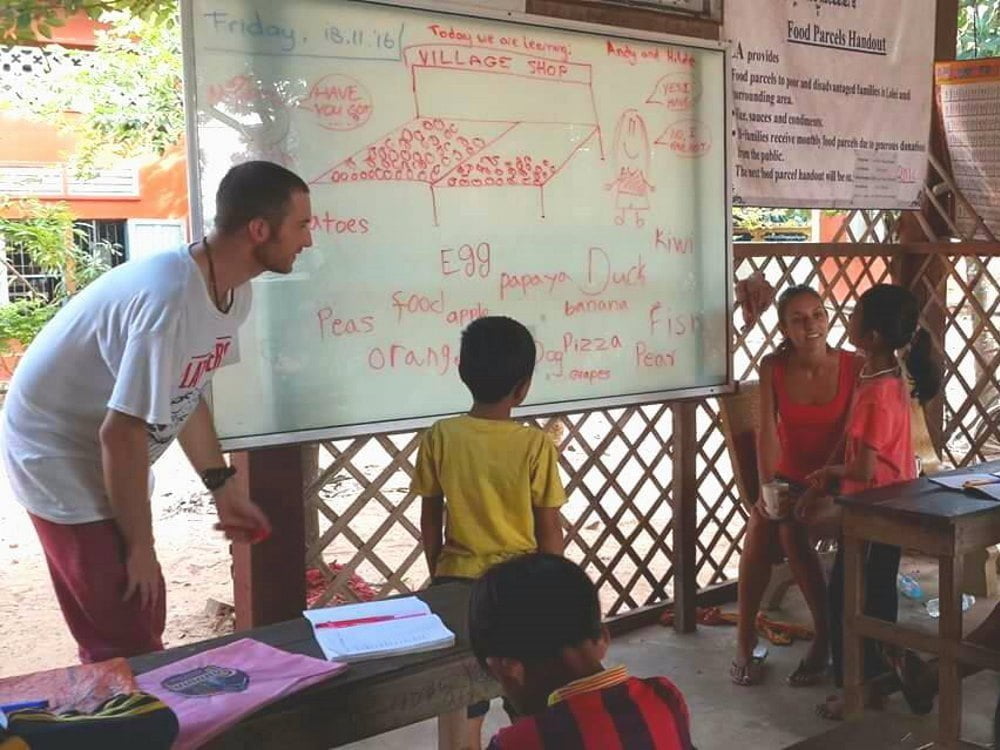How To Make Your TEFL Teaching More Eco-Conscious
Words and Photographs by the team at The TEFL Academy

For many, teaching English as a foreign language (TEFL) either abroad or online is a job plucked straight out of their dreams. Not only does it allow many travel enthusiasts to travel the world and live the ultimate nomad life, but it also offers some of the most rewarding experiences as teachers are immersed in the customs and cultures of their students.
TEFL can also be an extremely powerful tool in educating new audiences in sustainability and the ways in which we can keep our planet healthy. To help get you better equipped for how you can make your TEFL teaching more eco-conscious, we’ve pulled together some great tools for educating your classes on the environment.

Air Pollution
According to the World Health Organization, a whopping 92% of the population currently live in areas with an unhealthy amount of air pollution. With nine out of ten people in the world breathing polluted air, here are two great ways of educating students on the effects of air pollution:
Plant a Tree
Depending on what the school allows, planting a plant, tree or even small garden can be a fun and interactive way of educating students about reducing the effects of air pollution.
Word Searches
Word searches can be a great way of learning about the key terms and ideas associated with air pollution, whilst also developing their understanding of the English language in an engaging way. Word searches are also a great way of ensuring that the terms you’ve been teaching are being retained in a fun, analytical way.

Recycling
Recycling has undoubtedly been the most hotly-discussed topic surrounding the world of sustainability over the past decade or so, but it’s still estimated that 80% of the world’s household waste is still dumped into general landfills, waterways and oceans. Here are some great ways of incorporating awareness for recycling into your TEFL teaching:
Have a Gallery Walk
Organize a tour around the classroom and school and encourage students to point out different objects and materials that could be recycled. Not only will this help them get a better idea of the scope of what can be recycled, but also help develop their language skills by putting names to specific items.
Desk Cleaning
A task that every student has to do, but not one that every one necessarily loves to do, there are plenty of ways to make sorting desks a fun task for your class, as well as one that can bring with it a lot of learning too. Set up different recycling bins and ask students to identify the objects and which one they belong in. You could even devise a way in making the task a game for the class to encourage a little bit of competitive spirit!

Ecosystem
Everyone remembers learning about the ecosystem and its importance to a sustainable planet from their time in the classroom. It is one of the most engaging topics for students to learn about, and can be a great topic for sprinkling in some added language skills for a class. Most people remember the diagrams of a frog or a butterfly as one of their first memories from their school days, and these sorts of things are exactly the sorts of classroom strategies that encourage exploration and creativity in students.
Here are a couple examples of how to incorporate ecosystem learning into your classroom:
Lifecycle Posters
We mentioned above about how much of an impact lifecycle diagrams had on our development, which is exactly why we still think they’re a great tool to teach students even today. Get creative with your class and encourage them to create colorful and exciting lifecycle posters that can go around the school. Sprinkle a bit of TEFL into the mix by handing out specific animals to different groups and encouraging them to work out the names of what they grow into.
Build A Bug Hostel
Depending on where in the world you’re teaching, bug hotels can be constructed using different materials usually found right outside on your doorstep. Sticks, bamboo, twigs and leaves are all great options – simply put them into a recycled bottle, tie them up and watch as the local critters move into their new home. You can encourage students to keep logs and journals of their hotels, helping them hone their English skills by identifying the different animals they see moving in.